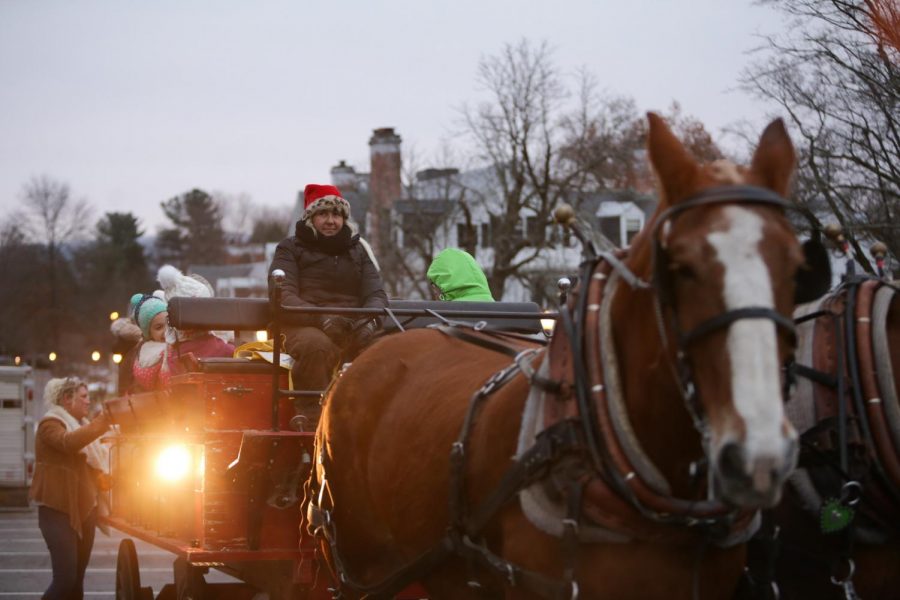On Sept. 23, The Right Horse Initiative held a discussion themed around equine welfare in the Integrated Sciences Building at the University of Massachusetts.
Topics of discussion ranged from the hundreds of thousands of at-risk horses in the United States to the Initiative’s involvement in reshaping the way the equestrian community views adopting and rescue horses themselves.
Christie Schulte Kappert, a program manager of The Right Horse, began the discussion by identifying some of the common issues in adoption within the equine industry, such as horses becoming at-risk for inhumane transitions into unfit homes or a lack of resources for owners countrywide. Kappert then explained the mission, progress and goals of the Initiative: to “shatter the stigma around and reframe the conversation around horse shelters to increase horse adoption in the U.S.”
“Misperception and misinformation hinder horse adoption. When prospective owners purchase through the sales market, they unknowingly pass over thousands of adoptable horses that are ready candidates and just the horse they are looking for,” reads the Right Horse Initiative website manifesto.
Veterinary doctor Harry W. Werner also spoke to the audience, addressing changes within the equine industry over the years, such as economic struggles and natural disasters, and how they have impacted equine shelter life.
“If in your career you encounter a situation where you question the decision of the owner, put the horse first,” Werner said when discussing the ways in which veterinary care has changed in relation to changes in animal ownership. “If what you are doing is in the best interest of the health and wellness of the animal, then go ahead.”
Werner serves as an advisor of programs and partnerships through the organization on the Veterinary Advisory Council.
Some of the Right Horse’s current projects include the Right Horse Summit, which was held in Lexington, KY on May 22 and 23, and efforts to increase capacity of horse shelters by aiding programs such as Kentucky Humane Society Equine CARE and Horses Without Humans Rescue Organization.
Other examples of their efforts include encouraging industry collaboration through projects such as the Oklahoma 4-H Equine Makeover, and providing community resources such as the Maryland Equine Transition Service (METS) or Denver Dumb Friends League Harmony Equine Center.
“As horse owners, we understand the significance of finding the right horse,” reads the organization’s website. “By working together as an industry, we’re poised to make these joyful, life-changing connections the new norm rather than a rarity.”
Jasmine Nelson can be reached at [email protected].



















